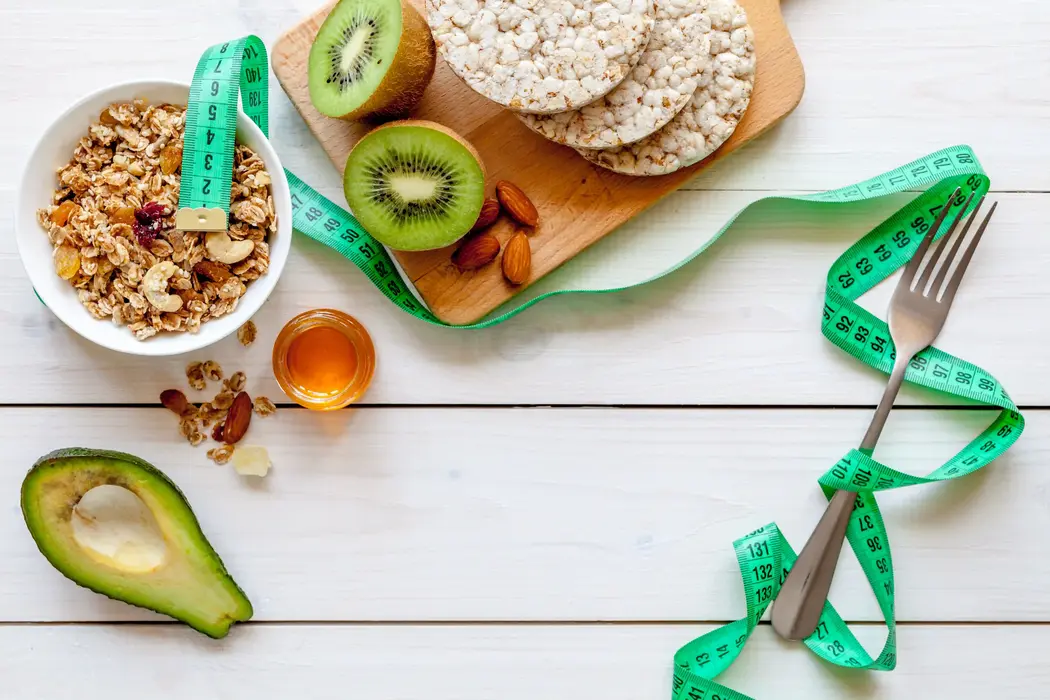Close your eyes and think of this: while scrolling through your social media feed, you come across another influencer selling the idea of some ‘quick fix’ meal and weight loss tips and tricks. Does that sound familiar? Just information overload for you because no one knows what is true and what is an absolute con. So, if you’ve gotten caught up in the endless tornado of maintenance myths, do not worry,, as a few of them have been debunked. So, here are 10 methods and ways you want to keep in mind to achieve your goal.
Myth 1: Skipping Meals Will Help You Lose Weight
It is natural for not eating to come as a quick fix option, but all it does is starve your body. In other words, when you skip meals and tend to ignore your body’s signals, you are forcing your body into a lower survival mode,’ which drastically lowers your metabolism. As a result, you will end up overeating when you do eat. Not to forget, you need a stable source of nutrients for your body to function properly. Keeping your body fuelled constantly will only make those long-term goals much easier to achieve.
Myth 2: All Calories Are Equal In Value
It’s not that simple—a calorie can come from a lot of different sources. The fact that calories are a form of measuring energy is not enough; it is also important to know where those calories came from. In terms of diet, let’s look at cookies vs. vegetables. In 200 calories, vegetables provide a broad range of nutrients as compared to cookies, which consist of sugar and get empty nutrition. Regarding weight management, it is important to foster ways of thinking that favour nutrient-dense foods as opposed to ‘empty-calorie’ foods.
Myth 3: Fat-Free Or Low-Fat Are Always Wholesome Snacks
Fat-free yoghurt seems to be ideal for any dieter but beware – it usually has a lot of sugar to cover up the fat deficit. Avocados, nuts, and olive oil are healthy fats that are essential for energy and brain health. So what’s the end result? Fat should not be a source of fear but rather a source of careful selection.
Myth 4: You Don’t Need a Diet; Just Working Out is Perfect
You should definitely understand that hitting the gym helps in burning calories and staying fit; however, when your food patterns are not so great, working out isn’t enough. A complete management of weight includes exercise and a balanced diet as well. It’s a joint effort! A bad diet is something you cannot outsmart, but if you pair healthy eating with exercise, the results will be perfect.
Myth 5: Eating During the Night Leads to Weight Gain
People have to understand that eating at a particular time does not lead to weight gain; rather it is the overall caloric intake that matters. It doesn’t matter the time you eat as long as you consume an adequate amount. But, of course, indulging in snacks during the late hours can put people on a poor diet (for instance, pizza at midnight) and overindulgence. The key is moderation in food intake during the day, and eating time won’t be an issue.
Myth 6: Carbohydrates Are Bad For Weight Control
Don’t be misled. Carbohydrates are not harmful. Whole grains, peas, pulses, fruits, and many other complex carbohydrates are the most essential sources of energy and nutrients. The key is to distinguish complex carbohydrates from refined carbs like white bread and sugary baked goods, which are known to raise blood glucose levels. In the right control, carbs can be wonderful sources of food.
Myth 7: All Fad Diets Must Yield Long-Lasting Results
We “lost 10 pounds in 10 days” must be selling something on the Internet, but I guess you might have come across them all. We know there exist all kinds of fad diets, and, frankly speaking, they are attractive. The first step is to understand that they are meant to be followed indefinitely. Most of them promote strict calorie diets, eliminate one or more food groups, and so on—leading to nutrient shortfalls and then rebound weight gain. This marathon takes time, so try to shift your focus to building healthier habits.
Myth 8: Fat Loss in Certain Areas of the Body
One’s body really does lose fat in a particular manner dictated by their genes, dietary regimen, and how much exercise they do within their life. FOCUS!!! Time to bring in the truth: Spot reduction does not exist at all. Even a million crunches will do back to love handles, and a zillion squats will not make the thighs and midsection fat disappear. Honestly, those who want to have washboard abs love handles, and thighs like these are oftentimes not desirable at all.
Myth 9: All Supplements are Important for Weight Loss
Then the marketers work while this is all correlated. Health supplements come in the form of vitamins and enhance your well-being, but they do not do a thing if healthy food and exercise are not part of the equation. Talking about weight loss supplements, most of them do not have any scientific evidence, so they often bring severe negative repercussions. In simple words, these elusive pills do not cure obesity, which has no cure. Not without a number of lifestyle changes that are in dire need of making.
Myth 10: People Who are Overweight Need to Blame their Metabolism
Metabolism is one of those factors that decides the number of calories your body will burn. But it is not always the main reason why an individual adds weight. Eating more because of a lack of exercise and stress is more of an issue. It’s no secret that nutrition and exercise are known to increase your metabolism. So, the fact we do know now is that you are far more powerful than you envisaged.
Important Information About Weight Management:
Now that we have set the primary rules, ‘weight management’ is much easier. And these things are balanced and wholesome food. Don’t forget to stay active, exercise, and adore your body.
Do away with confusion! This section aims to clarify so that you do find it easier to comprehend the goals of ‘Weight Management’. So here it is, everything regarding ‘Weight Management’, demolishing everything into a simple Q&A format.
FAQs:
1. What is the optimum number of meals I need to be eating in a day to be on a weight loss diet?
The truth is, there is no one-size-fits-all solution. An acceptable target could be three main meals a day, but one can also have six meals that are smaller in size. The key is to be disciplined and manage how much you consume.
2. If I want to lose weight, do I have to cut out desserts entirely?
No. The only thing you need to keep in mind is moderation. Treat yourself to your favourite desserts once in a while, but ensure that you have a balanced diet.
3. Does getting older make weight management difficult?
As you grow older, it helps to know that your metabolism is affected and it slows down a little, but there are still ways to mitigate it by exercising at the gym and eating properly.
4. What is the amount of exercise that is required in a week to lose weight?
The CDC suggests moderate-intensity physical activities for 150 minutes a week with strength training greater than or equal to 2 times a week. Combination with sane eating will help achieve better results.
5. How can one most efficiently quantify weight progress?
Focus on measuring yourself, including fitness stats and the way clothes fit. Marks are more accurate than a scale, as it is not about the total weight number but everything else. It’s about the bigger picture!




